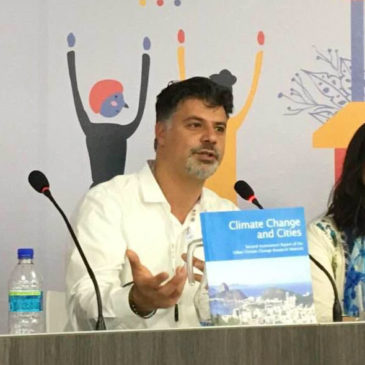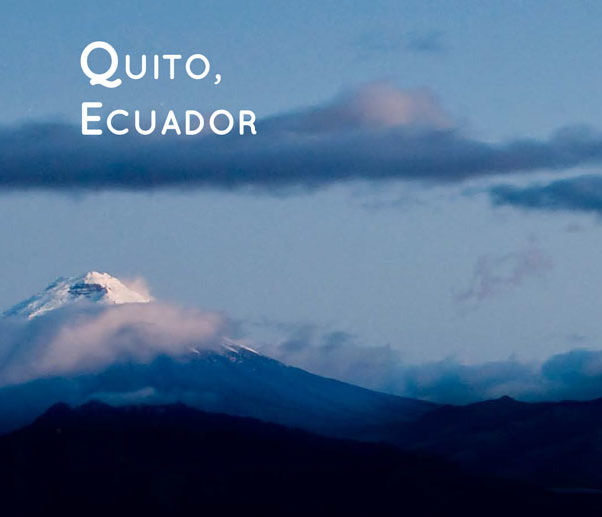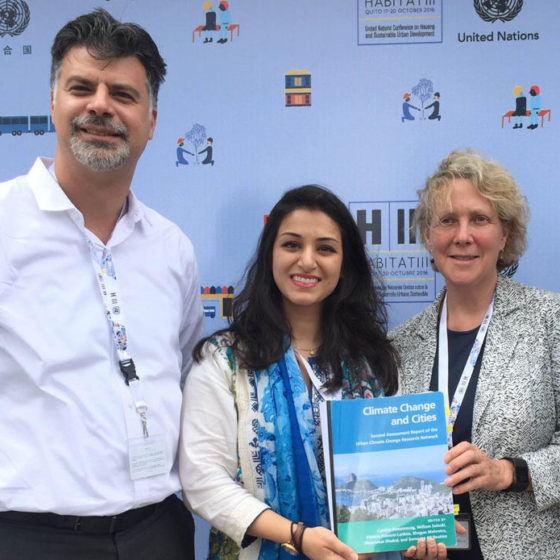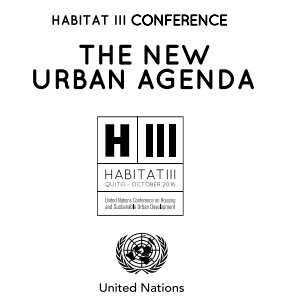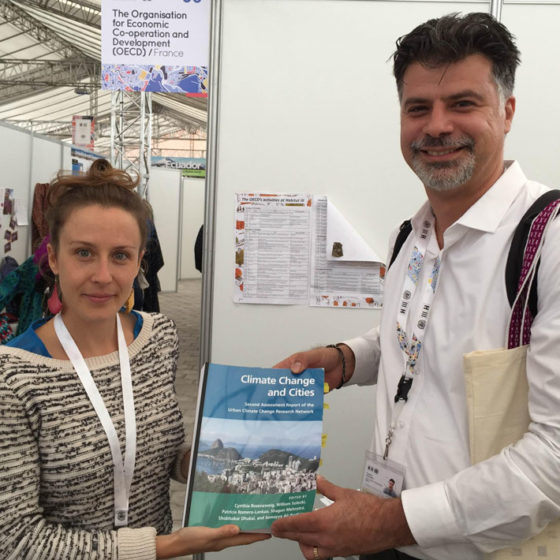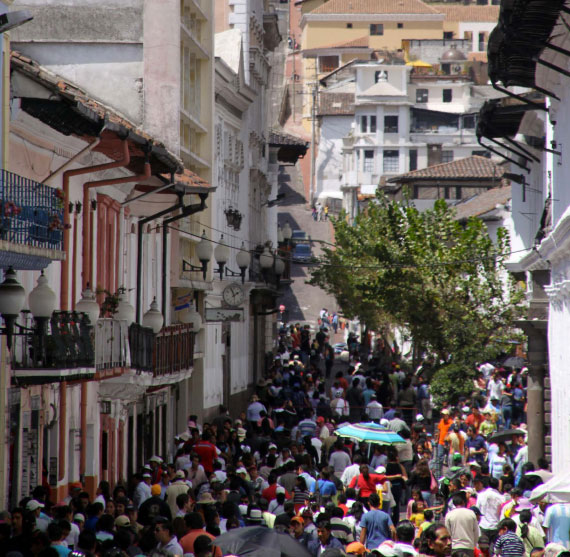Habitat III, UN Conference in Quito, Ecuador
Last week, Dr. Franco Montalto was introduced as the new Director of the North American Hub of the Urban Climate Change Research Network. The announcement took place at Habitat III, the United Nations Conference on Housing and Urban Development held in Quito, Ecuador October 17-20, 2016.
is a network of more than 750 researchers from around the world studying the impacts of climate change in cities. The newly formed North American Hub will promote collaboration between UCCRN researchers and city leaders across North America. At Habitat III, Dr. Montalto presented preliminary ideas developed with other colleagues regarding the new Hub's structure and mission.
HABITAT I, HABITAT II AND THE HABITAT AGENDA
The United Nations General Assembly convened the Habitat I Conference in Vancouver, Canada, in 1976, as governments began to recognize the need for sustainable human settlements and the consequences of rapid urbanization, especially in the developing world. At that time, urbanization and its impacts were barely considered by the international community, but the world was starting to witness the greatest and fastest migration of people into cities and towns in history as well as rising urban population through natural growth resulting from advances in medicine.
The Vancouver commitments were reconfirmed 20 years later, at the Habitat II Conference in Istanbul, Turkey. World leaders adopted the Habitat Agenda as a global plan of action for adequate shelter for all, with the notion of sustainable human settlements driving development in an urbanizing world.
Forty years later, there is a wide consensus that towns' and cities' structure, form, and functionality need to change as societies change. Cities have continued to expand outwards beyond their peri-urban areas, often due to weak urban planning, poor urban management, land regulation crises, and real estate speculation factors. It is now well understood that slums and related informal settlements are a spontaneous form of urbanization, consisting of a series of survival strategies by the urban poor, most borne out of poverty and exclusion.
Habitat III, and the New Urban Agenda as a result, represents an opportunity to make concrete the ideals of Habitat II in designing policies, planning urban spaces for all, and providing affordable urban services and utilities by looking to the cities as an incredible force of global development and facing the challenge of how to manage the urbanization process to improve citizens' lives


